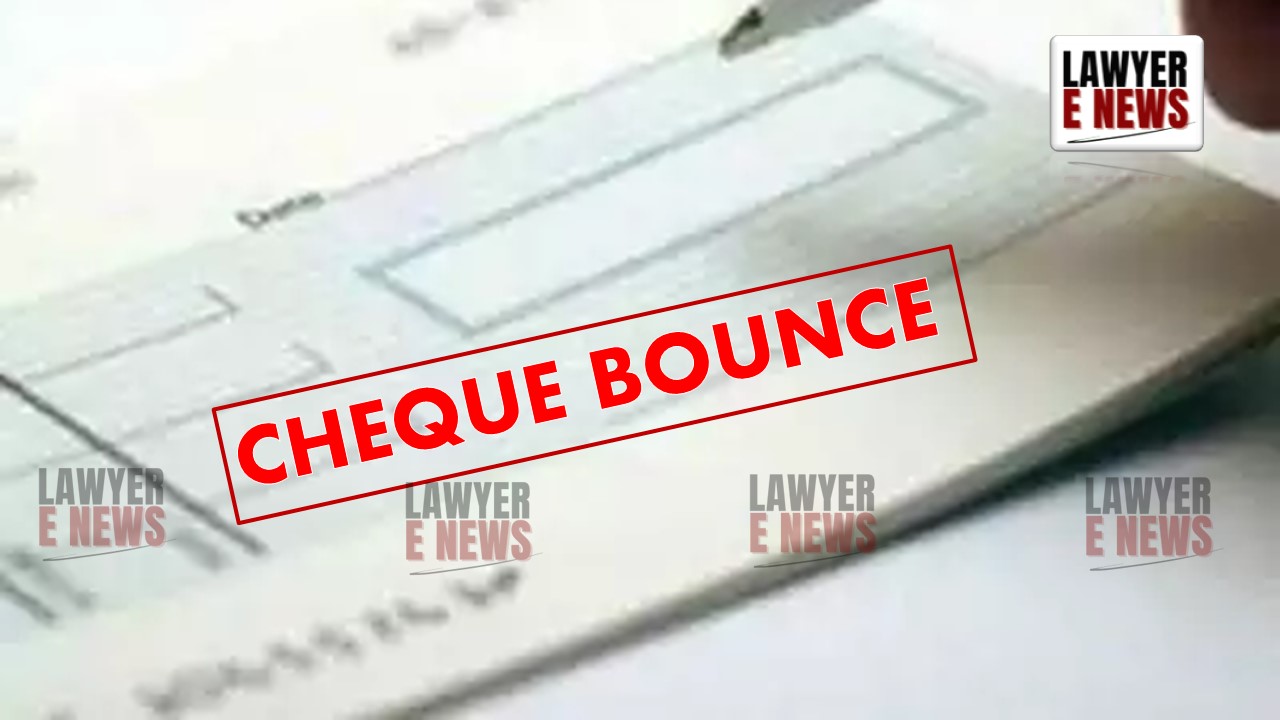-
by Admin
15 February 2026 5:35 AM



Himachal Pradesh High Court, presided over by Justice Sandeep Sharma, dismissed a criminal revision petition filed by Shyam Lal in Cr.R No. 317 of 2024, challenging his conviction under Section 138 of the Negotiable Instruments Act, 1881. The court upheld the concurrent findings of the trial court and the appellate court, which had sentenced the petitioner to two years' imprisonment and directed him to pay compensation of Rs. 8,00,000 to the complainant, Amrit Lal.
The case originated from a complaint filed by Amrit Lal, who alleged that the petitioner, Shyam Lal, had issued a cheque for Rs. 8,00,000, which was dishonored due to insufficient funds. The complainant and the petitioner were in a business relationship, and the cheque was issued as repayment for a loan extended by the complainant to help the petitioner with his transportation business. Despite a legal notice being served, the petitioner failed to repay the amount, prompting the complainant to initiate proceedings under Section 138 of the Negotiable Instruments Act.
The trial court convicted Shyam Lal on May 9, 2023, and this conviction was upheld by the Additional Sessions Judge, Kinnaur in an appeal on March 5, 2024. Dissatisfied with these judgments, the petitioner approached the High Court in the present revision petition.
The core legal issue in this case was whether the petitioner had successfully rebutted the statutory presumption under Section 139 of the Negotiable Instruments Act, which presumes that a cheque is issued in discharge of a legally enforceable debt unless the contrary is proven. The petitioner argued that the cheque was not issued for any such liability and that the legal notice was improperly served. However, the respondent contended that all the statutory requirements under Sections 138 and 139 of the Negotiable Instruments Act had been fulfilled, and the petitioner had failed to present a probable defense.
Justice Sandeep Sharma reaffirmed the well-established principle that the issuance of a cheque raises a statutory presumption of liability under Sections 118 and 139 of the Negotiable Instruments Act, and it is the drawer’s burden to rebut this presumption. The court held:
"There shall be a presumption available in favour of the holder of the cheque that the same was issued in discharge of some lawful liability. No doubt, aforesaid presumption is rebuttable, but for that purpose, the accused is under obligation to raise a probable defense."
The court observed that the petitioner did not deny his signature on the cheque or his business dealings with the complainant. Despite ample opportunities, the petitioner failed to produce cogent evidence to rebut the presumption or establish a probable defense. As the petitioner neither contested the existence of the debt nor provided evidence of a credible defense, the statutory presumption remained unrebutted.
The petitioner contended that the legal notice demanding payment was not properly served. However, the court found no merit in this argument. The complainant had served the notice to the petitioner’s registered address, and the petitioner failed to contest this fact during the trial. The court noted:
"The record reveals that the legal notice was served upon the accused at the address mentioned in the complaint, upon which he was subsequently served with the court notice."
Thus, the court held that the statutory requirements for issuing and serving the legal notice were satisfied, and the petitioner’s argument was without basis.
The court emphasized the limited scope of revisional jurisdiction under Section 397 of the Criminal Procedure Code (CrPC), which allows the High Court to correct errors of law or gross miscarriages of justice but does not permit reappreciation of evidence unless there are glaring errors. The court observed:
"In its revisional jurisdiction, the High Court can call for and examine the record of any proceedings for the purpose of satisfying itself as to the correctness, legality, or propriety of any finding, sentence, or order."
Finding no miscarriage of justice or error of law in the judgments of the lower courts, the High Court declined to interfere with the concurrent findings of fact and law.
The High Court dismissed the revision petition, upholding the petitioner’s conviction and sentence. The court directed the petitioner to surrender to serve the two-year imprisonment imposed by the trial court. It also instructed the trial court to release any amount deposited by the petitioner as compensation to the complainant upon the filing of the appropriate application.
Date of Decision: October 14, 2024
Shyam Lal v. Amrit Lal,
